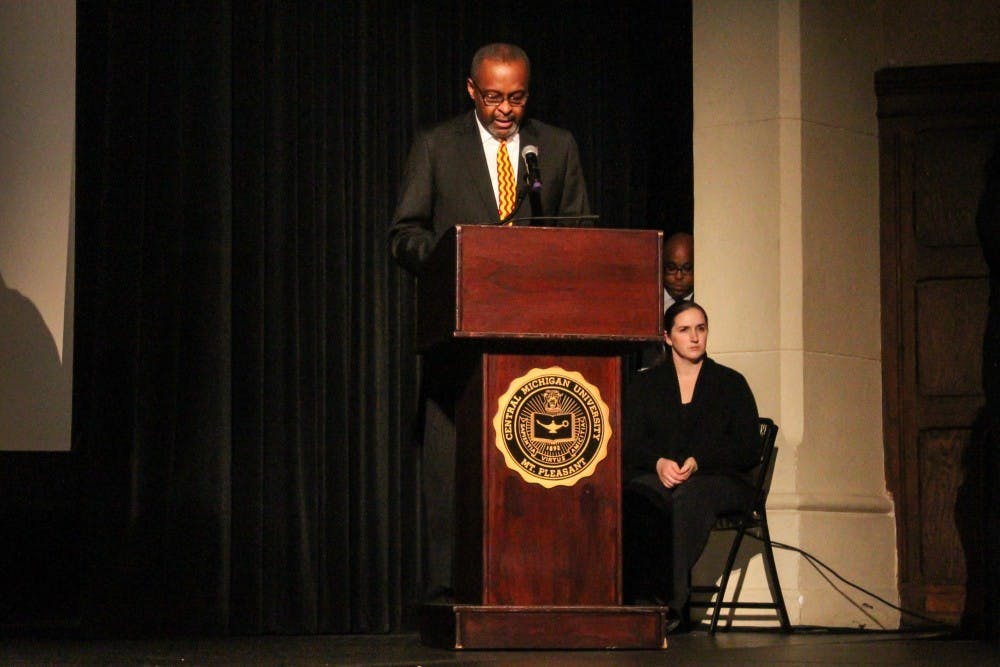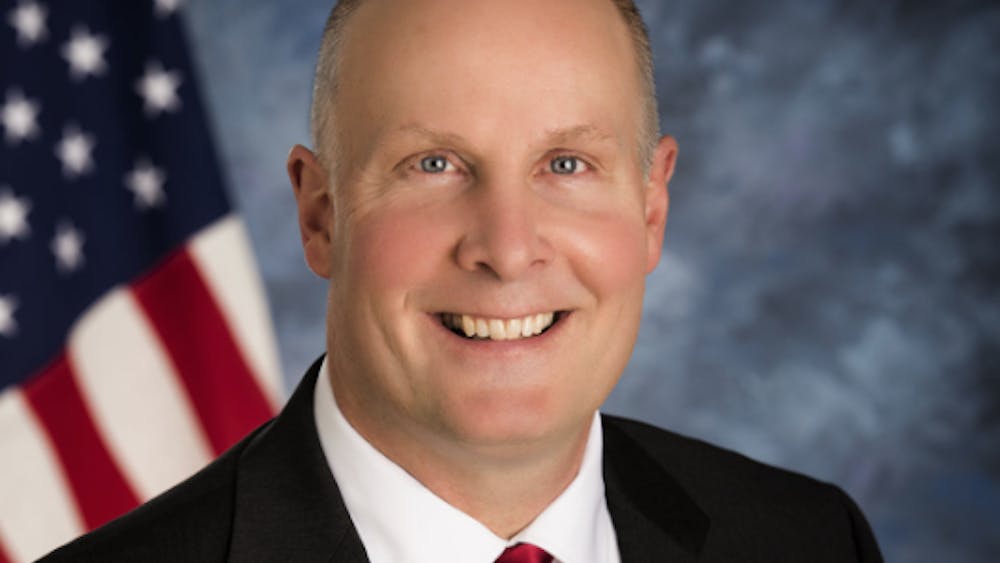Consulting firm provides diversity, inclusion plan

CMU President George Ross addresses the attendees of the Diversity and Inclusion Town Hall on Nov. 30 at Plachta Auditorium.
A town hall meeting presented results of inclusion and diversity research conducted on Central Michigan University’s campus by The Barthwell Group, a strategic managing consulting firm, Nov. 30 in Plachta Auditorium.
The Barthwell Group presented their findings based off of an online survey sent out to the entire university and interviews and focus groups conducted with students, faculty and staff.
The interviews and focus group participants self-identified as being a part of under-represented groups such as women, LGBTQ, veterans, minority religions and racial groups, and people with disabilities.
“CMU’s commitment to diversity and inclusion is unwavering,” said university president George Ross. “This assessment demonstrates our commitment at all levels of the university. We understand it’s important to periodically evaluate our initiatives, our operations and our services.”
One of the recommendations the group made to improve the inclusion and diversity environment on campus was to implement a committee that would make inclusion and diversity a priority. Ross said this committee is something that the university will formulate.
“The Barthwell (Group) consultants worked with four CMU liasons from various stakeholder groups from across the university,” said Michael Gealt, provost and executive vice president. “This (ensured) they could hear a wide ranging sample of the thoughts and perceptions of our faculty, staff students and the sample that they heard we believe is large enough to represent CMU’s population.”
More than 2,500 participants took the online survey. About 60 people were interviewed and 13 focus groups were also interviewed as a part of the research.
The study aimed at answering ‘What is the status of inclusion and diversity at CMU?’ said Akosua Barthwell Evans, Founder and Chief Executive Officer of The Barthwell Group.
The research will also provide information on if CMU is an environment where every individual, regardless of differences, feels “valued and respected and is able to realize his or her potential,” Evans said.
After data was gathered, it was analyzed from responses to each question and across the different interviews, focus groups and online responses to look at nuances behind the statements in what people, Gealt said.
Based on the individual interviews and focus groups, the first group of people expressed that CMU’s student body is not diverse. The majority of online responses said the opposite, but with discrepancies among CMU faculty and staff and African-Americans, who responded CMU as not being diverse.
“I don’t think there was any surprising information (presented today),” said Carolyn Dunn, associate director of the Office for Institutional Diversity. “We’ve already been doing a lot of this work.”
Dunn’s office has been working on an inclusion and diversity strategic plan and has been waiting for the results of this research before completing the plan, she said.
“Changes at the university sometimes move at a glacial pace, but we’ve been waiting for these research results,” Dunn said.
Implementing the committee focusing on diversity and inclusion initiatives is a major way Dunn thinks the environment at CMU will improve, she said.
Gealt agreed, and said implementation needs to happen right away now that the results of the study are completed.
Respondents in both groups felt CMU does value diversity and inclusion, but there was a feeling that more needs to be done, Evans said.
Only 35-40 percent of online respondents felt diversity and inclusion were extremely important to CMU.
“We want to have some things actually accomplished before the end of this year,” Gealt said. “Some things can be done relatively rapidly, while other things, like change in curriculum, will take a little longer.”
For the university to be successful in making diversity and inclusion a priority, Gealt said they have to keep having town hall meetings and “keep the conversation going.”



